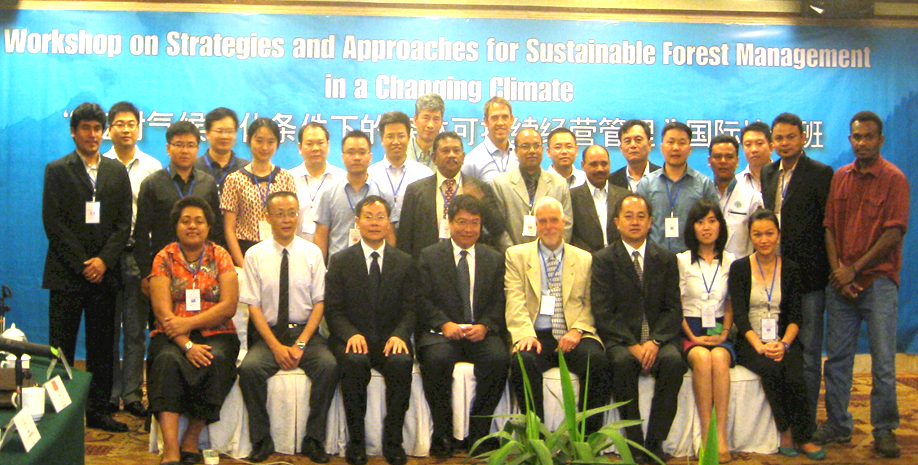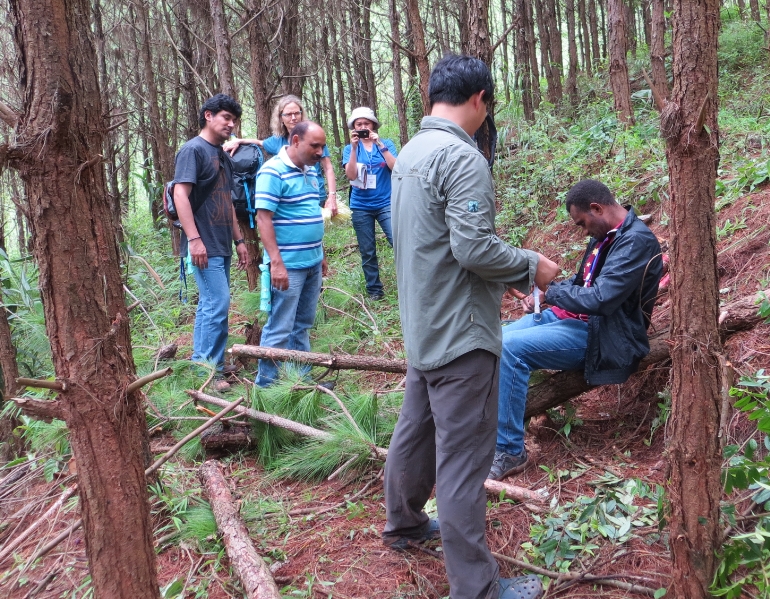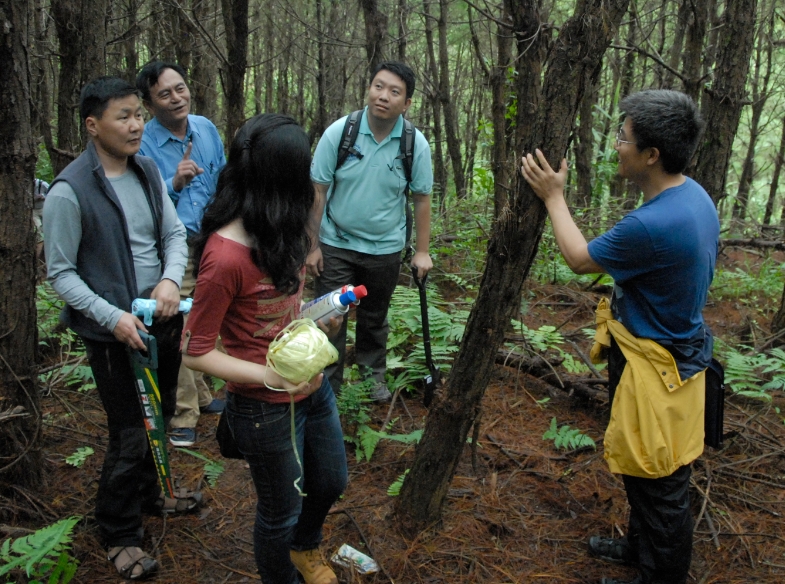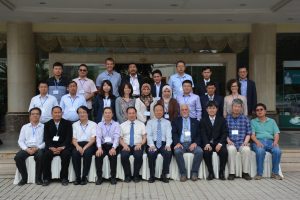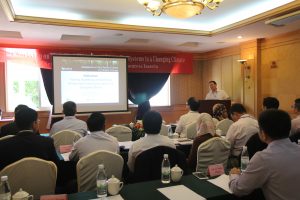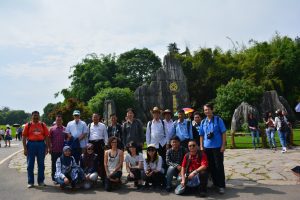Kunming Training Workshop: July 1-12, 2013
A workshop on strategies and approaches for sustainable forest management in a changing climate was successfully held in Kunming City, China on July 1-12, 2013
The workshop was sponsored by the Asia-Pacific Network for Sustainable Forest Management and Rehabilitation (APFNet) and organized by APFNet and the Faculty of Forestry at UBC. Most instructors were from the research team of this project in the UBC Faculty of Forestry. The workshop aimed to strengthen participants’ capability and knowledge of site selection, data collection, modeling and forest-based software application in addressing climate change.
Participants
The workshop brought together fifteen technical officers and practitioners involved in forest management from twelve countries in the Asia-Pacific Region, including Bangladesh, China, Fiji, Indonesia, Laos, Malaysia, Mongolia, Myanmar, Nepal, Papua New Guinea, Peru and Thailand.
Activities
The workshop was comprised of a six-day indoor training session and a four-day field trip. The thematic lectures were delivered by professors and senior researchers covering a wide range of topics related to climate change, including methodologies and approaches to data collection and biomass analysis, high-resolution climate models, climate niche models for forest ecosystems and tree species, hydrological and carbon models, forecast model application and forest adaptation in the Asia-Pacific region. The workshop also provided several decision-making methods for participants to conduct forest adaptation to climate change in their own domestic situation.
The four-day field work was conducted in a forest near Pu’er city, China. Participants were divided into three groups and practiced plot sampling, tree measurements, disk and increment core sampling, calculation of volume increments, and biomass and inventory data updating. A presentation was given by each group at the end of the workshop to summarize their work and to discuss possible improvements. The participants also visited several showcase forests and ecosystems near Pu’er city. The field work provided a good chance for interaction and communication between the participants and instructors.
Participants shared their experiences with sustainable forest management and forest adaptation in a changing climate during the group discussion. They also raised discussion of emerging challenges and difficulties and were enlightened by insightful suggestions from the resource persons. The organizers and instructors were impressed by the attentiveness, active involvement and thoughtful feedback of all participants. The workshop provided an opportunity to build a broader network, connecting participants and instructors in order to facilitate communication and cooperation in the future.
Kunming Training Workshop: May 31 – June 7, 2016
A second training workshop on modelling climate change and forest ecosystems in a changing climate was successfully held in Kunming, China from May 31 – June 7, 2016
The workshop was co-organized by the Chinese Academy of Forestry in Kunming, China. Similar to the workshop held in 2013, the event focused on technical applications of management and decision-making methods in order to increase the capacity of participants to conduct research on forest adaptation to climate change in their own economies.
Participants
Nineteen participants gathered from the project’s partner economies including China, Chinese Taipei, Malaysia, Myanmar, and Laos. As the second phase of the project has expanded to include Southeast Asia, this workshop presented itself as an opportunity to introduce our new partners to the models and tools developed in Phase I and extend the knowledge and adaptive capacity of the region.
Activities
The workshop consisted of 7 days of lectures and activities, and a 1 day field trip. The workshop focused largely on technical applications, including management and decision-making methods in order to increase the capacity of participants to conduct forest adaptation to climate within their own domestic situation. Training was conducted over the workshop primarily through presentations and activities in which participants address research questions related to their local economies by selecting appropriate analysis tools, running analysis, and interpreting results. The objective of the workshop was to introduce the models and tools developed in the previous phase of the project to the local partners such that they are able to effectively and independently able to implement their research for their respective pilot site.
Additionally, a 1 day field trip to the Stone Forest and Yunnan Nationalities Village was organized in order to familiarize participants with the local ecology and social customs of the region.

